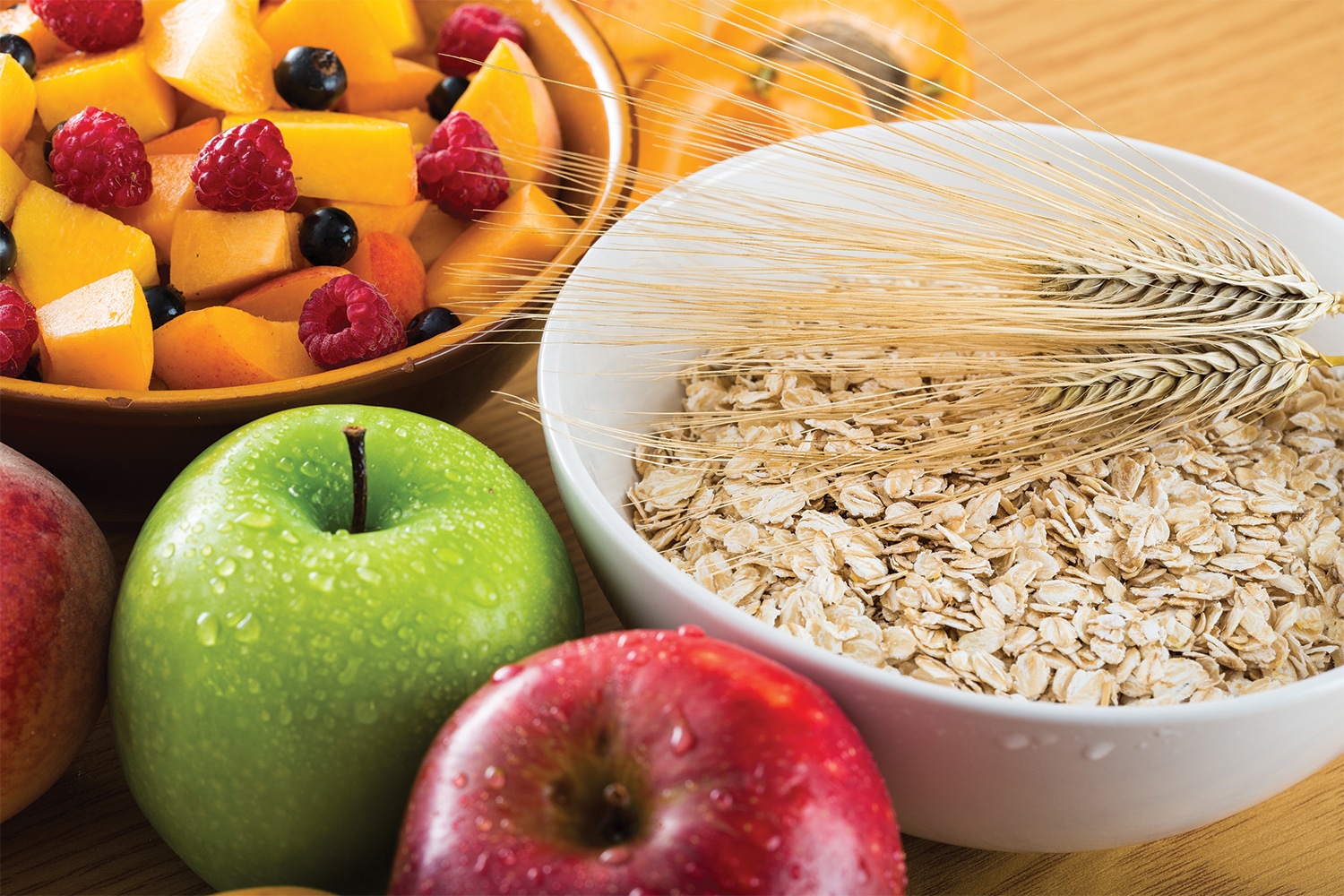A growing body of research indicates that a healthy diet—rich in vegetables, fruits, whole grains and fiber—may help reduce the risk of developing certain types of colorectal cancer. A study published in the July 2017 issue of JAMA Oncology suggests that diet may influence colorectal cancer risk by affecting the bacteria in the gut.
Add Fiber to Your Diet
Some studies have shown that consuming fiber-rich foods is associated with a lower risk of colorectal cancer. High-fiber foods include whole grains like oats; legumes, nuts and seeds; and many fruits and vegetables.
The study tracked the diets of more than 137,000 people enrolled in the ongoing Nurses’ Health Study and Health Professionals Follow-up Study. During 26 to 32 years of follow-up, 3,260 people developed colorectal cancer. Researchers were able to analyze the microbial content of the tumors of 1,019 of these participants.
People following a diet rich in whole grains, fiber, fruits and vegetables, referred to as a prudent diet, had a reduced risk of developing colorectal tumors containing Fusobacterium nucleatum, a bacterium that has been linked to both inflammatory bowel disease and colon cancer.
Fiber content appeared to play a role in the beneficial effects of the prudent diet. Compared to subjects with the least fiber-rich diets, those with the most fiber in their diets were half as likely to develop F. nucleatum-positive tumors. “That’s a big effect in epidemiology,” says Shuji Ogino, a pathologist and epidemiologist at the Dana-Farber Cancer Institute in Boston and the study’s co-senior author. Fiber may encourage the growth of beneficial bacteria, while suppressing that of F. nucleatum.
The researchers found little evidence that diet affects the risk of developing F. nucleatum-negative colorectal cancer.
“This is the first large, well-designed human study to link diet, the gut bacteria and colon cancer,” says Jiyoung Ahn, a molecular epidemiologist at the NYU Perlmutter Cancer Center in New York City, who identified an association between Fusobacterium and colon cancer in a 2013 study. The new study, she adds, “helped to contribute to a better understanding of the diet and colon cancer relationship.”
Cancer Today magazine is free to cancer patients, survivors and caregivers who live in the U.S. Subscribe here to receive four issues per year.





